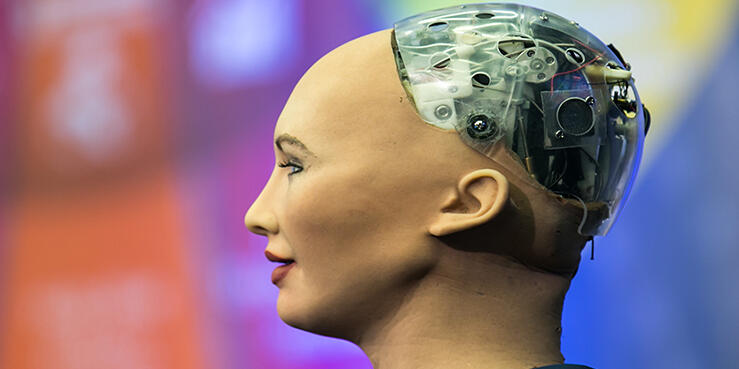
Date: Wednesday, 11 October 2017
Time: 10:00 am – 1:00 pm
Location: ECOSOC Chamber, UN Headquarters
The future will no longer be what we once thought. It is widely acknowledged that the pace and breadth of technological advances are intensifying, and by 2030 – the target date for achieving the Sustainable Development Goals – the world will have undergone further changes in the realm of daily human interaction. Many changes already underway are having a profound impact on our economies, societies and ecosystems. Industrial processes are becoming increasingly automated and robotized, with human intervention increasingly confined to specific tasks. Rapid growth in large datasets, and the capacity to store and use them, offer new resources for research, analysis and problem-solving, but can also be used by cyber-criminals. Ubiquitous computing, facilitated by advances in the Internet of Things in combination with 5G, big data and nanotech, will also be key drivers of change. We may truly be at the beginning of what has been referred to as the “Fourth Industrial Revolution”.
In many of these areas, ethical questions arise around the potential of technological advancements to outpace policies and regulations and, in the process, undermine societal norms. while many advances hold great promise for sustainable development and poverty eradication, they also risk leaving much of the world behind in a global context in which inequalities are already sharply felt. To address these challenges and forge solutions for using technological change as a catalyst for inclusive development, the Economic and Social Council (ECOSOC) and Second Committee of the General Assembly will organise a joint meeting on “The Future of Everything – Sustainable Development in the Age of Rapid Technological Change”. The joint meeting will include a three-hour panel presentation and interactive discussion between expert presenters from Government, academia, the private sector and civil society, and meeting participants. The discussion will focus on best practices and new initiatives with respect to the latest developments in this area, including how policy-makers and their partners can harness the benefits of progress in science and technology, while minimizing their unintended, negative consequences.
- Informal summary of the Joint Meeting – NEW!
- Concept note
- Programme
- Bios of Speakers
- 2017 Joint Meeting Media Zone – NEW!
- Additional UN resources
- Policy brief on “Fulfilling the Promise of Globalization: Advancing Sustainable Development in an Interconnected World”, UN DESA/Office for ECOSOC Support and Coordination, September 2017
- Frontier issues paper on “The Impact of the Technological Revolution on Labour Markets and Income Distribution”, UN DESA/Development Policy and Analysis Division, July 2017
- The Future of Work initiative, ILO
- AI for Good Global Summit, hosted at ITU (7-9 June 2017)
- The Commission on Science and Technology for Development (CSTD)
- Foresight for digital development - Report of the Secretary-General
- Issues Paper On Foresight for Digital Development (Prepared by the UNCTAD secretariat)
- STI Forum
- The UN Global Working Group on Big Data for Official Statistics
- UN Global Pulse
- Present Thinking About the Future of Intellectual Property: A Literature Review
- Foresight into the Future of WIPO’s Development Agenda
- IISD: UNIDO Explores What Industry 4.0 Can Do for Sustainable Energy
- WEF: 7 ways the Fourth Industrial Revolution can help the planet
 Welcome to the United Nations
Welcome to the United Nations 